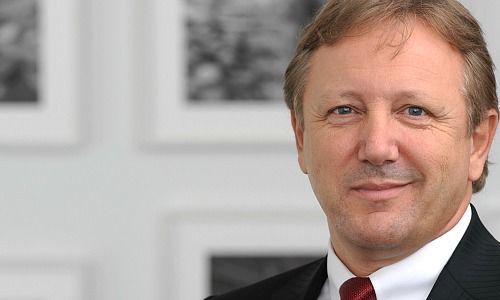Credit Suisse booted its head of private banking in a 2015 overhaul. Now, the veteran Swiss banker is resurfacing in connection to the Swiss bank in a $490 million energy buyout.
A consortium of Swiss investors which bought EDF's stake in Swiss energy firm Alpiq is launching a tender offer to take private the remaining 10 percent of stock still in free float. The new investors want to delist Alpiq after the purchase concludes in October, they said in a statement on Wednesday.
Alpiq also proposed four new directors as a result of the deal: Jørgen Kildahl, Anne Lapierre, Phyllis Scholl – and Hans Ulrich Meister. Meister's name continues to resonate in Swiss banking circles: the Swiss banker advanced to Credit Suisse top management and was once even touted to succeed then-CEO Brady Dougan.
Instead, he left banking in 2015 when Dougan's successor, Tidjane Thiam, shut him out of a 2015 overhaul. Meister's job was split between Swiss boss Thomas Gottstein, private banking head Iqbal Khan (who left the bank suddenly last week), and Asia boss Helman Sitohang.
From Finance to Infrastructure
Meister, a charismatic veteran retail and corporate banker, quickly built up a career outside of finance. In 2016, he took over as chairman of Swiss construction firm Implenia. Now, he is poised for election as a director of Alpiq – as an emissary of Credit Suisse, via an infrastructure fund leading the consortium.
The Swiss bank's CSA Energy Infrastructure Switzerland is the anchor investor in the deal, which values Alpiq at roughly $2 billion. CSA marshalled minority shareholders including other domestic power plants as well as cantons and Lausanne-based EOS Holding for the buyout.
Squeeze-Out Controversy?
For Credit Suisse, CSA is an investment vehicle for infrastructure projects. Set up in 2014, it is favored by investors like pension funds and managed by an investment boutique within Credit Suisse's asset management arm.
CSA is the largest such vehicle in Switzerland and connected to 135 pension funds. Hometown rival UBS operates a similar fund, but focuses on sustainable and renewable energy. For Meister, the cross-section of banking and infrastructure seems to be fruitful enough to lure him back into the fold. The shareholder squeeze-out is expected to be contested by minority investors, some of whom view the offer as too low.


































